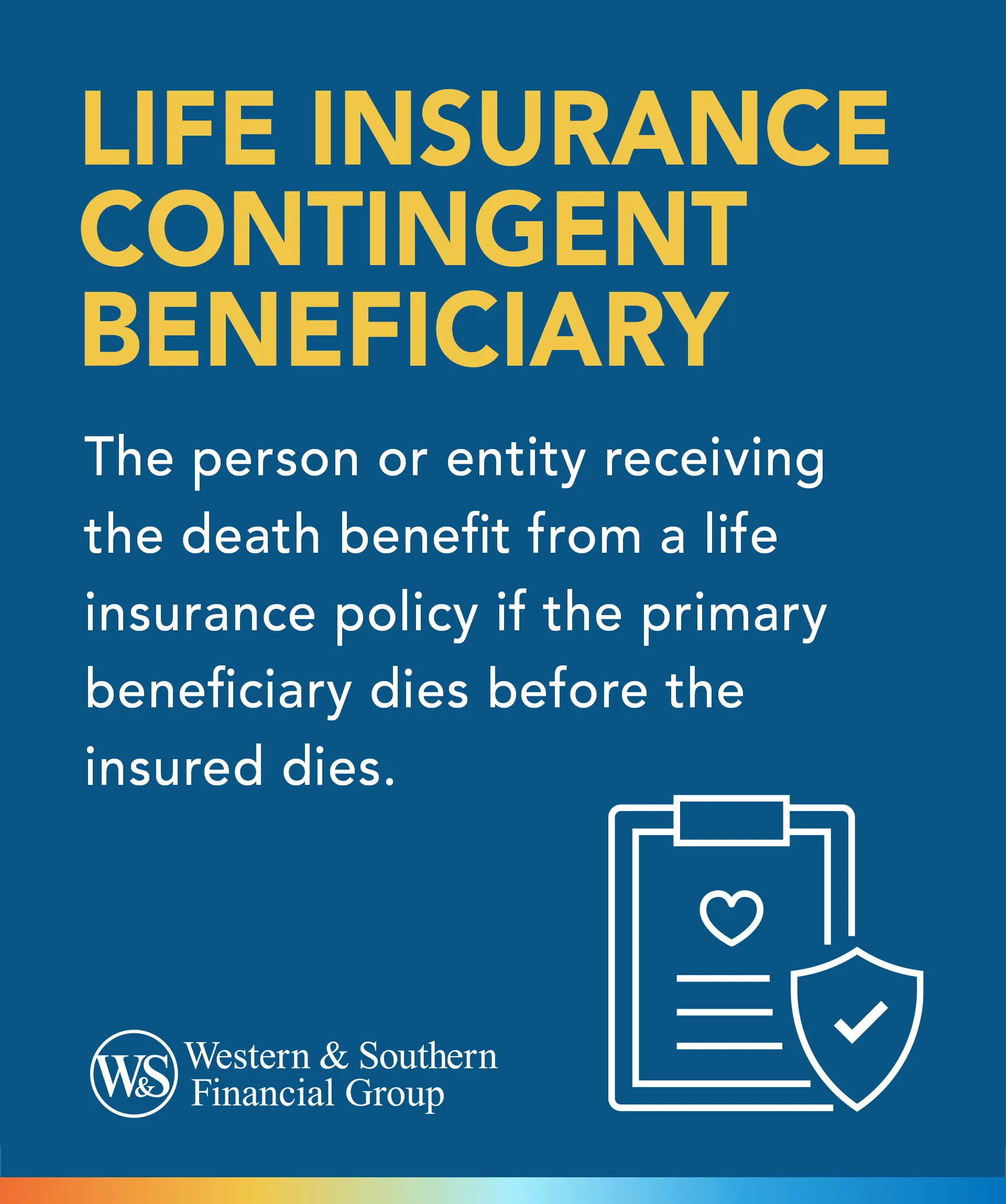

Table of Contents
Key Takeaways
- A contingent beneficiary receives the death benefit of a life insurance policy if the primary beneficiary cannot receive it.
- Naming a contingent beneficiary ensures that someone of your choosing receives the life insurance benefit if unexpected circumstances occur.
- Spouses, children, other relatives, nonrelatives, trusts, and charitable organizations can be named as contingent beneficiaries.
- Trusts can be beneficial for individuals with financial or management concerns regarding their ideal beneficiaries.
- Consider all available options when setting up a contingent beneficiary to determine who will have access to your assets upon your death.
When you buy a life insurance policy, you typically name a life insurance beneficiary, just as you do with a 401(k) account. You can name one or more primary beneficiaries. Understanding how contingent beneficiaries work for life insurance can help you decide whether to choose one — and who you want it to be. Here's what to consider.
Understanding Contingent Beneficiary
A contingent beneficiary is a person or entity that receives the death benefit of a life insurance policy if the primary beneficiary cannot receive the proceeds. For example, if the insured dies and the primary beneficiary is deceased or declaims the policy benefit, the contingent beneficiaries would receive the benefit.
Why Name a Contingent Beneficiary?
The benefit of naming one or more contingent beneficiaries is that you choose who receives your life insurance benefit even when things don't go quite as planned.
For example, if you and your primary beneficiary die in a car accident, your contingent beneficiary or beneficiaries receive your life insurance proceeds. This is one reason why married couples sometimes name their children as contingent beneficiaries.
Who or What Can Be a Life Insurance Beneficiary?
Life insurance policyholders typically have flexibility when choosing beneficiaries. Here are some examples of who or what can be a contingent beneficiary — or a primary one, for that matter.
Spouse
Spouses are often chosen as a primary beneficiary, but the policyholder may instead name the spouse as a contingent beneficiary if they choose. It's important to note that with certain qualified retirement plans, such as a 401(k), the spouse must be named the primary beneficiary, unless the spouse gives written consent otherwise.
Children
Life insurance policyholders sometimes name a spouse as the primary beneficiary and their children as contingent beneficiaries. If the spouse is deceased or cannot receive it, the children will receive it when the insured dies.
For minor children, the policyholder can designate a custodian under the Uniform Transfers to Minors Act (UTMA) or to a trustee or set up a trust to receive the benefit on the minor's behalf.
Other Relatives
If the life insurance policyholder does not name their spouse or children as beneficiaries, or if the policyholder does not have a spouse or children, they may choose other relatives they want to take care of financially as beneficiaries.
Nonrelatives
A life insurance beneficiary does not need to be a spouse, a child or a relative. Individuals outside of the family may also be named as beneficiaries.
Trusts
Individuals are commonly named as life insurance beneficiaries, but making a trust a beneficiary can make sense in some cases. For example, people whose ideal beneficiaries have trouble managing money might consider naming a trust to help those funds get used as they intended.
Charitable Organization
If your individual beneficiaries are no longer in need of financial support, you may choose to name a charity as the beneficiary. You could also choose to name a charity as a partial beneficiary, or you might consider naming a charity as a contingent beneficiary.
Although a contingent beneficiary only receives the proceeds of a life insurance policy if the primary beneficiary cannot receive the benefit, it's still important to consider all options available to you. There are a number of situations where setting up a contingent beneficiary may help you decide who will receive the life insurance benefit when you die. If you have more questions, consider talking to a financial representative.
Frequently Asked Questions
What is the difference between a primary and contingent beneficiary?
A primary beneficiary is the person who receives the life insurance payout first upon the policyholder's death. A contingent beneficiary, on the other hand, only receives the payout if the primary beneficiary cannot, such as if they have already passed away.
How much does a contingent beneficiary get?
A contingent beneficiary receives the policy's proceeds only if the primary beneficiary is unable to claim them, typically due to their death. The amount they receive is the same as what the primary beneficiary would have gotten.
What happens if a contingent beneficiary dies?
If a contingent beneficiary dies before the insured, their share typically goes to any remaining contingent beneficiaries or the primary beneficiary, if alive. If no other beneficiaries are designated, the death benefit might go to the insured's estate.












